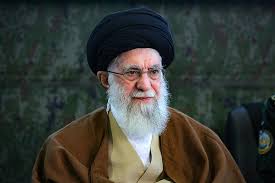"New York Times": Internal pressures push Khamenei to change his stance and agree to negotiations with Washington.

Sources informed "The New York Times" of a fundamental shift in Iran's stance towards negotiations with the United States, following intense pressure exerted by top officials in Tehran on Supreme Leader Ali Khamenei, warning of the risks of worsening the economic crisis and potential military threats that could destabilize the regime.
According to sources, a secret meeting was held in March involving Khamenei, President Ebrahim Raisi, as well as parliamentary and judicial leaders, where they discussed the looming risks facing Iran, especially with the deteriorating economy, declining local currency, and severe shortages of basic necessities like electricity and gas.
Two high-ranking Iranian officials, who requested anonymity, confirmed that Iranian leadership explicitly warned Khamenei that rejecting negotiations with Washington could lead to catastrophic consequences, including possible military strikes on nuclear facilities in Natanz and Fordow, exacerbating internal crises and threatening regime stability.
Khamenei had previously adamantly refused any direct dialogue with the United States, labeling it a "political sin," but internal pressures ultimately led him to backtrack on this stance, agreeing to initiate indirect talks through Omani mediation, with the possibility of evolving into direct negotiations later on.
On March 28, Iran officially responded to a letter from U.S. President Donald Trump, expressing readiness for negotiations, with the first round of talks set to begin on Saturday in Oman.
Iran continues to insist on indirect negotiations, exchanging messages through intermediaries, while Washington remains determined to hold direct meetings, viewing any progress towards direct dialogue as a significant concession from the Iranian side, which has long rejected any public contact with Americans.
This development comes amidst highly complex circumstances, with experts warning that the failure of negotiations could push the region to the brink of collapse, especially with escalating military threats and internal unrest in Iran.